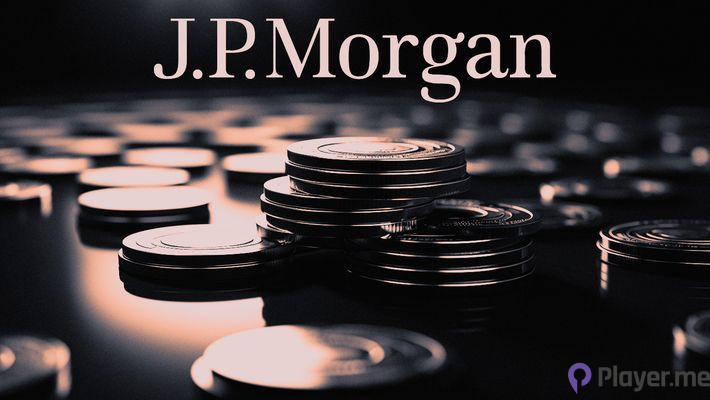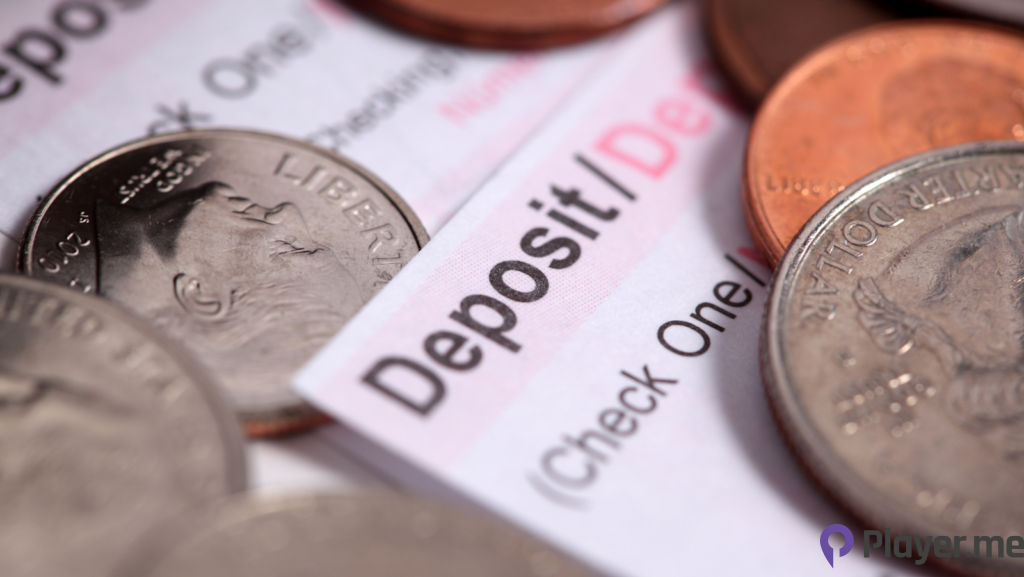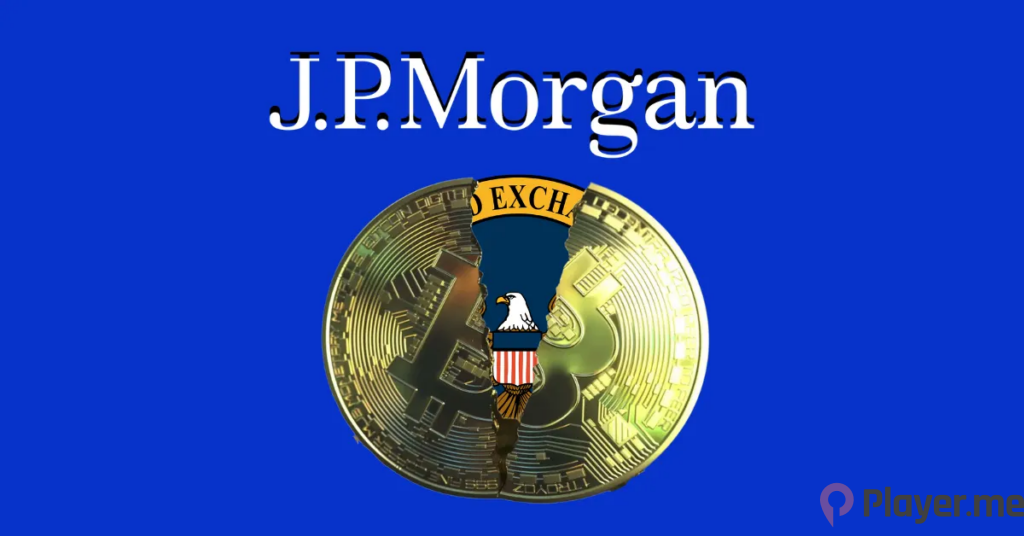Initially created for cryptocurrencies like Bitcoin, blockchain technology has earned substantial attention for its potential to revolutionise various industries, including finance. Blockchain is a decentralised and transparent digital ledger that securely records transactions across multiple computers. Its inherent characteristics of transparency, immutability, and security make it an engaging option for financial organisations.
JPMorgan recently announced its exploration of a blockchain-based deposit token for payments and settlements. This innovative solution aims to leverage the benefits of blockchain technology for safe, transparent, and efficient financial systems.
The deposit token, built on a private blockchain network, would represent funds JPMorgan holds. It can be seamlessly transferred between different accounts, enabling faster and more secure transactions. The bank aims to streamline payment and settlement processes, reduce operational costs, and mitigate risks associated with traditional systems through blockchain technology.
Also Read: TSMC Delays Arizona Chip Production: Biden’s Plans Hit a Snag
The Current Payment and Settlement Systems

Traditional payment and settlement systems have long relied on centralised intermediaries such as banks and clearinghouses to facilitate transactions. These systems involve multiple parties, complex processes, and significant time delays. Payments are often processed through a series of intermediaries, resulting in high transaction costs and increased risk of errors.
Following this, the system suffers from several challenges and limitations. These include lengthy settlement times, limited transparency, high costs, and vulnerability to fraud. Cross-border transactions are complicated, involving multiple currencies, regulatory requirements, and clearing processes. In all, these inefficiencies hinder global commerce and financial inclusion.
Blockchain technology, therefore, offers a promising solution to the challenges of traditional payment systems. When a decentralised and transparent ledger is utilised, blockchain enables direct peer-to-peer transactions, eliminating the need for intermediaries. Payments and settlements can be executed in near real-time, significantly reducing settlement times and costs. The immutability and transparency of blockchain also enhance security and trust, reducing the risk of fraud. Finally, blockchain has the potential to simplify cross-border transactions by providing a common infrastructure for global payments.
You May Also Like: Unlocking Elon Musk’s Alphabet “X” Obsession: The Enigmatic Pursuit
Advantages of Blockchain-Based Deposit Token

Blockchain technology offers enhanced transparency and security for transactions. Each transaction recorded on the blockchain is immutable and transparent, ensuring all participants have access to a secure and auditable ledger. This can help reduce fraud and provide a higher level of trust in the payment and settlement processes.
However, implementing a blockchain-based deposit token can lead to cost savings for businesses and consumers. Transaction fees can be reduced when intermediaries are removed and the payment and settlement processes are streamlined. Additionally, automating and digitising processes through smart contracts can minimise administrative costs.
Blockchain-based deposit tokens will also contribute to improved accessibility and financial inclusion. Traditional banking services are often inaccessible to individuals in underserved regions or those without access to a bank account. But, through blockchain technology, JPMorgan hopes to enable the average person to participate in the digital economy while facilitating financial inclusion and empowering individuals to transact and store value securely.
Potential Challenges and Considerations

Firstly, as JPMorgan explores the development of a blockchain-based deposit token, it must navigate potential regulatory and compliance challenges. The financial industry is subject to strict regulations, particularly regarding Know Your Customer (KYC) and Anti-Money Laundering (ALM) requirements. JPMorgan will need to ensure that the token adheres to these regulations and that appropriate measures are in place to mitigate risks associated with illicit activities.
Also, scalability and interoperability are crucial considerations for any blockchain-based solution. As the bank aims to facilitate large-scale payments and settlements, the blockchain network must be able to handle high transaction volumes without compromising speed and efficiency. Additionally, interoperability with existing financial systems and networks is essential to ensure seamless integration and widespread adoption.
Furthermore, the successful adoption and integration of a blockchain-based deposit token may face some setbacks. Financial institutions, businesses, and consumers may require education and awareness about the benefits and functionality of the token. Lastly, integrating the new technology into existing financial infrastructure could be complex and time-consuming, requiring collaboration and cooperation among various stakeholders.
Also Read: NVIDIA Earnings: Stock Soars as AI Giant Again Smashes Quarterly Expectations
Conclusion
JPMorgan’s exploration of blockchain-based deposit tokens highlights blockchain technology’s growing acceptance and recognition within the financial sector. As more institutions embrace this technology, we expect increased efficiency, transparency, and security in payments and settlements. While challenges such as regulatory frameworks and scalability still need to be addressed, the future of blockchain technology in payments and settlements appears promising. It has the potential to revolutionise the financial industry, enabling faster, more secure, and cost-effective transactions on a global scale.
Frequently Asked Questions
Can Individuals Use JPMorgan’s Deposit Token, or Is It Limited to Institutional Clients?
The primary objective of this token is to improve payments and settlements within the institutional banking sector, aiming to enhance transaction efficiency, reduce intermediaries, and increase the security and speed of settlements. While the technology has the potential for broader implications in the financial industry, JPMorgan’s current focus is on serving institutional clients rather than individual consumers.
Is the Deposit Token Limited to a Specific Currency, or Can It Be Used for Multiple Currencies?
The deposit token JPMorgan explores for payments and settlements is not limited to a specific currency. Still, it has the potential to be used for multiple currencies. As a blockchain-based token, it can digitally represent various fiat currencies, allowing for efficient cross-border transactions and settlements.
Are There Any Regulatory Considerations Associated with the Use of the Deposit Token?
Yes, there are regulatory considerations associated with the use of the deposit token being explored by JPMorgan for payments and settlements. As with any financial innovation, regulatory frameworks and compliance requirements are crucial in ensuring such tokens’ legitimacy, security, and stability.





